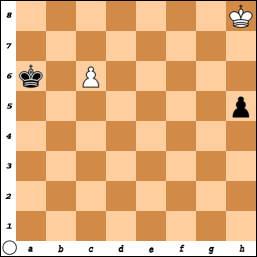
Paul Charles Morphy was born on June 22, 1837 in New Orleans. He was the son of a successful lawyer and judge Alonzo Morphy. His uncle, Ernest Morphy, claims that no one formally taught Morphy how to play chess, but rather that he learned the rules by observing games between himself and Alonzo.His father and uncle had not realized that Paul even knew the moves, let alone any chess strategy. They were even more surprised when Paul proved his claim by resetting the pieces and demonstrating the win his uncle had missed.
Capablanca 60 years later also learnt chess from watching his father play.
When Morphy was only 12 years old, Johann Jacob Loewenthal visited New Orleans and at the request of Morphys father, agreed to play a casual match with young paul. Young Paul won 2½ to ½.
He was also one of the first chess prodigies in the modern chess era.
By the age of nine, he was considered one of the best players in New Orleans.
He received an invitation to participate in the First American Chess Congress, to be held in New York in the fall of 1857. At first he declined, but at the urging of his uncle he eventually decided to play.
He defeated each of his rivals, including the strong German master Louis Paulsen in the final round. Morphy was hailed as the chess champion of the United States, but he appeared unaffected by his sudden fame. According to the December 1857 issue of Chess Monthly, "his genial disposition, his unaffected modesty and gentlemanly courtesy have endeared him to all his acquaintances."
Morphy then went to Europe to play the best players. At the Café de la Régence in Paris, the center of chess in France, he played a match against Daniel Harrwitz, the resident chess professional, soundly defeating him.
In Paris, Morphy suffered from a bout of intestinal influenza. In accordance with the medical wisdom of the time, he was treated with leeches, resulting in his losing a significant amount of blood. Although too weak to stand up unaided, Morphy insisted on going ahead with a match against the visiting German master Adolf Anderssen, considered by many to be Europe's leading player. Despite his illness Morphy triumphed easily, winning seven while losing two, with two draws.
One player that seemed to avoid Morphy was England's Howard Staunton (the name of the current standard chess set).
While Morphy waited to play Staunton he easily won a series of chess matches against all the leading English masters. Staunton, who was past his best but still a good player, and who initially promised a match but eventually declined and gave work duties as why he could not play.
Both in England and France, Morphy gave numerous simultaneous exhibitions, including displays of blindfold chess in which he regularly played and defeated eight opponents at a time.
So dominant was Morphy that even masters could not seriously challenge him in play without some kind of handicap. At a simultaneous match against five masters (Jules Arnous de Rivière, Samuel Boden, Thomas Barnes, Johann Löwenthal, and Henry Bird), Morphy won two games, drew two games, and lost one.
Morphy issued a challenge that he would play no more matches without giving odds of pawn and move.
When no challenges came he retired from chess.
On July 10, 1884, Morphy was found dead in his bath at the age of forty-seven. According to the autopsy, he had suffered a stroke brought on by entering cold water after a long walk in the midday heat.
Morphy played only 59 "serious" games of those played in matches and the 1857 New York tournament — he won 42, drew 9, and lost 8.
I give only one Morphy game but it is one of the best and well known games he ever played.
It is known as "The opera game" or " a night at the opera"
Whichever name it is know by,it is use by chess teachers to show the power of the PIN, and it is a fine example of minor piece attack.






























